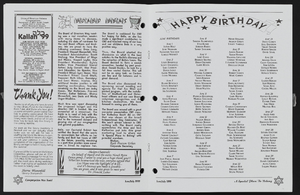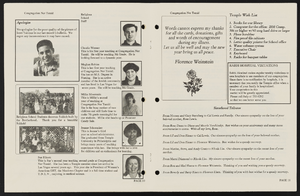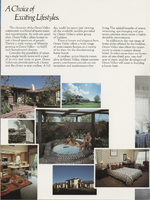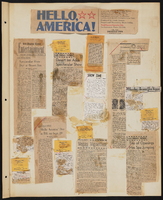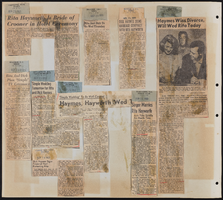Search the Special Collections and Archives Portal
Search Results

Ashley E. Nitz oral history interview: transcript
Date
Archival Collection
Description
Oral history interview with Ashley Nitz conducted by Claytee D. White on February 6, 2018 for the Remembering 1 October Oral History Project. In this interview, Ashley Nitz discusses her experiences attending the 2017 Route 91 Harvest music festival in Las Vegas, Nevada with a friend. She talks about making the weekend of the event a "staycation", where she stayed with her friend at the Trump Hotel. Nitz goes into detail on the Route 91 Harvest festival venue and the events of that Sunday night when the shooting began. She speaks of the lockdown in the Tropicana Hotel and the support given there to all of the survivors, such as water and medical aid, as well as her journey home once the lockdown was lifted. The interview ends with a discussion on life after the shooting.
Text
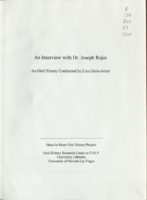
Transcript of interview with Dr. Joseph Rojas by Lisa Gioia-Acres, September 30, 2008
Date
Archival Collection
Description
Dr. Joseph Rojas, born 1933 in Alexandria, Louisiana, was the son of Joseph Edward Rojas and wife Carroll. He graduated high school at age 16 and entered Loyola University of the South. Two years later he was accepted at Louisiana State University School of Medicine, graduating with a medical degree in 1957. He interned at Charity Hospital and then completed his OB-GYN residency at Tulane University. Several mentors worked with Dr. Rojas during his residency and he recalls learning surgical and bed-side skills from the likes of Dr. Lynn White and Dr. Fred Janson. He also remembers the very high volume of patients - up to 300 - that he and other residents saw daily. Dr. Rojas married Mona Robicheaux, RN, during his residency and afterwards joined the Air Force. He and his family — they eventually had six children — were stationed at Nellis Air Force Base, arriving in Las Vegas in 1961. He was chief of OBGYN and deputy hospital commander while at Nellis and then served as chief of OBGYN at Southern Nevada Memorial Hospital until 1972. He later served as chief of staff at Women's Hospital and Valley Hospital, and was the first chief of staff at Summerlin Hospital. Dr. Rojas also maintained a private practice outside of the hospital. His wife worked alongside him in his office, and they share memories and anecdotes of the patients they saw and the general atmosphere of the medical community. Both Joseph and Mona agree that Las Vegas hospitals were less racially segregated than the hospitals in Louisiana, and felt that the West was more open to integration. In 1966 Dr. Rojas started the first OB-GYN residency in Nevada, which led to the development of the University of Nevada School of Medicine. He was a researcher, lecturer, teacher, and author. He earned many awards, including the Harold Feikes MD Award for Outstanding Physician in Clark County (2001), and the Nevada State Medical Association Distinguished Physician Award (1980). Dr. Rojas passed away in May of 2009, leaving behind an incredible legacy of service to the residents of Clark County.
Text

Interview with Marie Elizabeth (Stever; Daly) McMillan, March 5, 2004
Date
Archival Collection
Description
Text
Marie and James B. McMillan Papers
Identifier
Abstract
The Marie and James B. McMillan Papers (1928-2010) primarily contain documents pertaining to the families and careers of Marie and James B. McMillan. Included in the collection are photographs, biographical materials, newspaper clippings, award certificates, programs, obituaries, scrapbooks, trophies, legal and military documents, and political campaign documents. Marie McMillan is a former Las Vegas, Nevada flight instructor and one of the first women to work at the Nevada Test Site in Nye County, Nevada. James B. McMillan was the first African-American dentist to practice in Nevada, as well as a prominent Nevada civil rights leader.
Archival Collection

